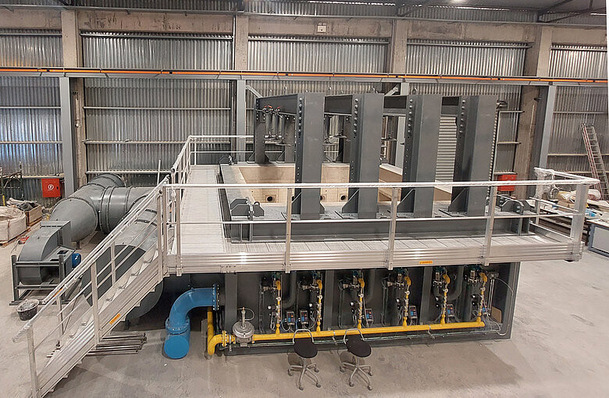After describing the Havana effect in my last article, I would now like to turn my attention to the most important issue in the current situation: Ensuring solvency and sufficient liquidity. Cash is king - this maxim originated in the stock market world around 1987 and is supposedly attributed to Volvo CEO Pehr G. Gyllenhammar, who coined the term in connection with a stock market crash.
Liquidity and transparency
Even though very few companies in our industry have anything to do with the stock market, ensuring sufficient liquidity is of course essential for us and the most important basis for entrepreneurial activity. The term liquidity (lat. liquidus, liquid) describes the ability of companies to fulfil their payment obligations for materials, services, wages and salaries etc. on time and without restrictions. The first step is to create sufficient transparency regarding the liquidity situation and payment obligations.
13-week outlook for the cash flow
In addition to sufficiently high turnover, which should also lead to corresponding incoming payments, the focus is of course on the liquidity required to carry out and maintain business operations. In order to keep an eye on this at all times, liquidity planning is always required in addition to accurate and up-to-date accounting.
This should allow a look into the future of at least 13 weeks and reflect the future development of income and expenditure as well as other financing options, such as loans, in the best possible way.
See also: Glass for Europe: "The price of energy is the greatest concern for glass manufacturers”
The key indicator here is cash flow or cash flow. It provides information on the inflow and outflow of funds in our companies within a specific accounting period and is the most important indicator for assessing the development of solvency.
Measures to strengthen liquidity
Let's start with the opportunities and measures we have in our own company to strengthen liquidity:
· Ensure a high level of transparency for all costs, especially material costs, and consistently implement cost reduction programmes based on clear targets (cost cutting). It is also advisable to scrutinise every order and decide whether it is necessary.
· Make personnel costs more flexible by making intensive use of flexible working time models (time accounts), contract work or temporary work, short-time working and the introduction of target achievement-based incentive systems for remuneration. Even if some people find it difficult to implement these measures in times of a shortage of skilled labour, good, transparent communication with the entire team often helps to explain the necessities and motivations in an understandable way.
· Optimisation of working capital by reducing inventories of primary products, auxiliary and operating materials as well as finished products with the aim of increasing the inventory turnover rate. The major problems in supply chains are over. Many companies are still sitting on excessive inventories, so it is high time to reduce them. This should also be an opportunity to scrutinise the adequacy of safety stocks in the ERP systems. The volume of new orders should be reviewed; decreasing output allows for lower volumes in warehousing or actually just-in-time deliveries. A prerequisite is a corresponding overview, well-functioning ERP systems and correct processes, and additional stocktaking can also help here. Switching to consumption-controlled approaches such as Kanban solutions, where material supply is triggered by actual consumption, helps to reduce capital commitment.
· Selling and leasing non-essential assets such as property, vehicles and machinery is particularly necessary in difficult times.
· The use of alternative financing methods such as sale-and-lease-back or leasing for essential investments in machinery, equipment, vehicles and property creates financial leeway.
Also interesting: Glaston sees healthy order situation despite uncertain markets
· Examine your own business model with regard to upstream (suppliers and service providers) and downstream processes (customers) for the need for change (insourcing, outsourcing, alliances) in order to realise additional synergies and economies of scale. This is an interesting and complex approach to strengthening liquidity in many ways, but you have to be prepared for other, sometimes unusual approaches and new partnerships.
· Reviewing and ensuring the profitability of all investments is an important function that owners and managers must fulfil at all times. But especially in times of crisis, it is essential to provide a qualified answer to the question "What is the return on investment or expenditure in euros and when will the funds used be recouped?". The standard investment calculation methods help here. Many things can also be calculated on the famous beer mat.
Holding regular meetings with those responsible to follow up on the measures implemented is essential, it offers a good opportunity for readjustment and rounds off our in-house package of measures.
In my next article, I will return to the topic of securing liquidity. The focus will then be on the measures that can be taken in co-operation with customers and suppliers. This will be followed by some experiences and recommendations from the area of financing and coping with financiers.















